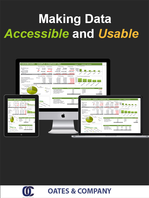Every business has accounting, tax, and other financial needs, and you most likely use software to handle those needs. With tax time possibly coming up for you, and with employees’ personal taxes due by the end of April, this is the perfect time of year to consider how your software solutions affect your taxes.
Reporting
Enterprise resource planning (ERP) and other software solutions can categorize and cross-file costs and income, which is the only way to get write-offs. If you are in an industry with specialized reporting requirements or are operating in multiple tax jurisdictions, your software will calculate accordingly to ensure that your business is following the appropriate tax laws. Good accounting practices give you control over itemized expenses, specialized reporting, and income streams.
Timing
 While your business doesn’t move at a predictable pace, your taxes do. The best system will give you a bird's eye view of your business expenditures and any profits you’re making and calculate taxes owed. Your ERP can also manage depreciated expenses, inventory write-offs, and employee costs to avoid unexpected taxes.
While your business doesn’t move at a predictable pace, your taxes do. The best system will give you a bird's eye view of your business expenditures and any profits you’re making and calculate taxes owed. Your ERP can also manage depreciated expenses, inventory write-offs, and employee costs to avoid unexpected taxes.
Integration
Your software must manage data from all across your business. Without integration, important information could be overlooked and monies incorrectly reported. For example: employees and contractors affect accounting, which in turn determines the amount of inventory you can have, and inventory determines storage space. Customers determine how much money you earn, which affects how much you can spend, etc. When your software integrates this information, your reports are more accurate, which leads to more accurate tax information.
If you want a better way to manage your financial needs, enterprise resource planning systems are a good option. For more information, please contact Oates & Company.



